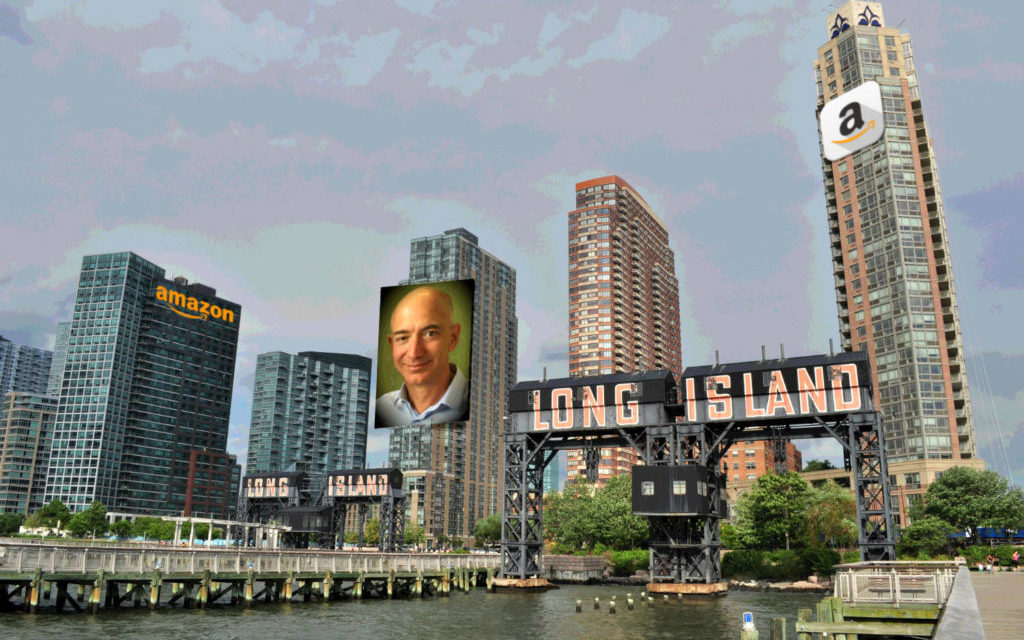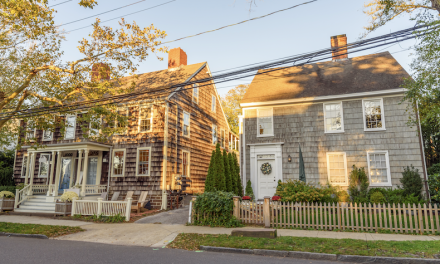Sayonara Amazon! We’re sure you’ve heard by now that Amazon will not be settling in Long Island City after all. The news was reported this morning, and its not being taken well by most in the real estate industry. Before we go down the rabbit hole and discuss the topic, lets try and understand the fundamentals of how this decision all came about.
To understand why we’ve gotten to this point with Amazon, its probably best to take a step back and try to learn a little more about big business in America. When a business gets big enough, about 500 or more employees, states/cities/towns start to entice them to come set up shop in their respective state/city/town. They’ll provide incentives to help make the decision to move or expand appealing for the company. The reason behind this is because business creates revenue for the local governments and population growth. The employees of that business pay payroll taxes to the local government, they buy houses in the local real estate markets & pay transfer fees to the local cities, they go out to dinner at the local restaurants, they pay sales tax at local grocery stores, and the owners of those respective restaurants and businesses pay taxes on those revenues – and so on and so forth. In the end it’s a net positive for the city in revenue growth in the long term and provides for a very exciting future for all.
While big business moving in is typically seen as good fiscally, there is a flip side of the coin. The opposition are the local stores and families that simply cannot keep up with the change. As big new business moves in, and a neighborhood quickly gentrifies – a lot of very fast changes occur for the people and families that predated these changes. A quick changing neighborhood can disturb the existing residents and force them to make certain changes that they probably aren’t ready for, or just didn’t want to undertake in the first place. This is where you’ll find resistance to a company like Amazon coming to town.
The deal for Amazon was to come to Long Island City and receive 3 Billion dollars in incentives from the city. They were going to be building a campus, while occupying 1 million sqft in the Citi building. They were planning on moving 25,000 jobs to the new campus and some thought over the course of 20-25 years that number could grow to 40,000 jobs. All in, some projected this to generate $27 Billion dollars in economic activity over the next 10 years. Unfortunately, they were met with opposition from local state and city elected officials. Some of the local community was reportedly not happy with the idea of a big corporation moving in either, although polling suggests they had 70% support from the local community. Governor Cuomo even went so far as to point out that his own political party “put their own narrow political interests above the community.” So, Amazon is moving on – bringing their campus to Nashville, TN.
With regards to real estate, this is a devastating blow to Long Island City. Prior to Amazon announcing that it would be coming to the area, the market had gotten very soft. Developers had over-developed the area with years of inventory that had to be absorbed, and interest rates were trending upward which restricts lending for buyers. Once they announced they had plans to come to the area, the market flipped to a seller’s market overnight. Developers and property owners were ecstatic that there was a pool of new buyers in town. The announcement promoted massive optimism for a strong market for Long Island City, in the near future. Some think that western parts of Nassau County would have also seen employees buying in their neighborhood for the school districts and suburb feel. Now that Amazon has pulled out, we’re right back at square one.
I think the bigger point here is that Amazon would have been pioneering a new community. Long Island City would have changed forever with the addition of Amazon and its employees. What would it all have looked like in 10… 15… 20 years from now had they come? What’s it going to look like in that time because now they’re not coming? What other businesses would have come to the area or opened locally because they were there? Does this whole thing with Amazon discourage businesses from coming to New York in general?
We won’t ever know the answers to some of the above questions, but I hope our city leaders and elected officials learned something from this loss. Personally, and maybe a little selfishly, the announcement of Amazon’s decision is something that saddens me. I believe it would have been a great addition to New York City, and a whole new beginning for Long Island City.




